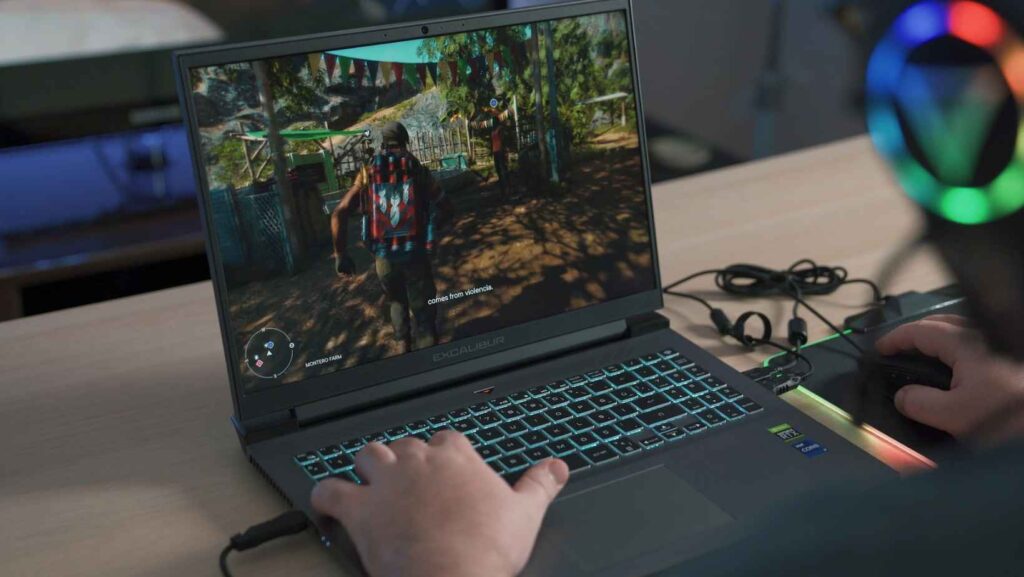In the vast realm of gaming, there’s a shadowy corner often whispered about but rarely explored: game hacking. It’s a world where players push boundaries, challenge norms, and redefine what’s possible. But what exactly is game hacking?
Stay with us as we delve into this intriguing world and unravel the mysteries of game hacking.
 Understanding Gamehacking
Understanding Gamehacking
Gamehacking, at its core, represents a practice where players alter, exploit or manipulate a game’s code or data to gain an advantage or change its functionality. This complex activity encompasses a broad spectrum of techniques, varying from superficial visual modifications to in-depth modification of game mechanics.
For example, gamehacking can involve changing a character’s outfits, enhancing their skills, or even manipulating the whole game environment, thereby altering the originally intended gaming experience.
It’s essential to comprehend that gamehacking is not necessarily a malicious act; instead, it’s often driven by curiosity and the innate desire to push the boundaries of what’s possible in a digital gaming universe.
Gamehacking
Within the spectrum of gamehacking, lie varied mechanics that aid in the process. This section accentuates the core of gamehacking: the detection and manipulation of game codes and the pivotal role of gamehacking tools and software.
Detecting and Manipulating Game Codes
Techniques for detecting and manipulating game codes vary. Manual code inspection comes as a primary method, where game hackers dissect the raw code to discern patterns or loopholes. This inspection generates understanding around game algorithmic behavior, thus presenting opportunities for manipulation.
Memory scanning, another method, involves novel software tools that scan a game’s active memory. Memory scans detect values corresponding to in-game elements. Understanding these values aids hackers to devise ways to alter them, a move that results in changes to in-game variables like health, speed, or even the game physics.
 Gamehacking Tools and Software
Gamehacking Tools and Software
Several tools and software exist in the gamehacking realm. Cheat Engine, an open-source memory scanner, stands out as an essential tool for many game hackers. Its ability to alter single-player game values makes it a practical choice for novice and seasoned hackers alike.
Advanced tools like disassemblers and debuggers offer more in-depth manipulation. They delve into the game code, enabling hackers to interrupt game processes, inspect values and registers, or alter control flow. Such comprehensive control facilitates complex alterations – modding game narratives or even creating entirely new game mechanics.
The Pros and Cons of Gamehacking
Both engaging and polarizing, gamehacking carries its share of pros and cons. This section delves into why some players resort to gamehacking and highlights potential risks and downsides.
Why Some Players Resort to Gamehacking
Personal motivations may drive people to gamehacking. Among the reasons, gaining competitive advantages sits at the top. With gamehacking, players manipulate the game code to skip difficult levels, access advanced weapons, or increase player abilities, leading to a more gainful playing experience. For instance, in multiplayer online games, a common gamehack might break the boundary conditions of the game, giving the player an unparalleled advantage over other players.
Furthermore, it’s driven by the intellectual curiosity of decoding and understanding how games work underneath. Gamehacking allows players to explore hidden corners of the game design and experiment with bugs and exploits in the code.
 Potential Risks and Downsides
Potential Risks and Downsides
Despite its lure, gamehacking isn’t without potential risks and downsides. Registering high on the list is the risk of account suspension or banning from the game platform. Game developers uphold the integrity of their games and the fairness of play, and thus implement anti-cheating measures. Players found manipulating the game system usually face punitive consequences, inclusive of being banned from the platform permanently.
The negative impact on community integrity also needs mentioning. Gamehacking disrupts the competitive balance of games, thereby ruining the gaming experience for other legitimate players, subsequently leading to a toxic gaming environment.
Finally, gamehacking softwares can pose computer security risks. Some gamehacks can carry malware, which, when downloaded, could compromise the security of a player’s computer system.



